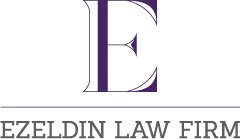Best Legal Document Lawyers in Illinois
Share your needs with us, get contacted by law firms.
Free. Takes 2 min.
Or refine your search by selecting a city:
List of the best lawyers in Illinois, United States
United States Legal Document Legal Questions answered by Lawyers
Browse our 2 legal questions about Legal Document in United States and read the lawyer answers, or ask your own questions for free.
- Confirming the authenticity of a divorce decree
- I'm married to a Nigerian, and I believe he provided a fake divorce decree, I need help to confirm this decree.
-
Lawyer answer by Nomos Legal Practice
Thank you and best regards, Kingsley Izimah, Esq. SK Solicitors
Read full answer - How do I legally protect my idea before selling or licensing it to a company?
- I have a makeup product idea that I want to sell or license, not the product itself. It is influenced by a product that was recently launched. Therefore, I want to sell/license to the company that launched said product. After some research, I contacted a patent attorney who explained that... Read more →
-
Lawyer answer by P.O OHIKHENA & Co
Good day,A patent will not be applicable since it's still an idea. You can go into an MOU(Memorandum of understanding) with the said company and also an NDA.You can contact me for my insight. Visit our profile and send us...
Read full answer
About Legal Document Law in Illinois, United States
Legal document law in Illinois covers the creation, execution, validation, and management of various legal documents such as contracts, wills, powers of attorney, real estate documents, and more. These documents are essential for recording agreements, granting authority, transferring assets, and ensuring that the parties' intentions are clear and enforceable under state law. Illinois law sets specific requirements for the drafting, signing, witnessing, and notarizing of many legal documents to ensure their validity and enforceability in courts or by government agencies.
Why You May Need a Lawyer
There are several situations where individuals and businesses may need legal assistance related to legal documents. Some common scenarios include:
- Drafting or reviewing contracts for employment, services, business transactions, or real estate sales
- Creating or modifying wills, trusts, and estate planning documents
- Transferring property ownership or handling related title documentation
- Establishing powers of attorney for health care or financial matters
- Responding to or initiating legal proceedings that require court forms or official documentation
- Addressing disputes over document validity, such as claims of forgery or lack of capacity
- Ensuring compliance with state-specific requirements for notarization, witnessing, and filing
A lawyer can offer valuable guidance to make sure your documents are legally sound, correctly executed, and customized to fit your specific needs. Errors or omissions in legal documents can result in costly legal disputes or unintended consequences.
Local Laws Overview
In Illinois, the execution and management of legal documents are governed by a mix of statutes and common law principles. Key legal rules include:
- Statute of Frauds: Certain agreements, such as contracts related to real estate or commitments that cannot be performed within one year, must be in writing to be enforceable.
- Notarization Requirements: Many legal documents, such as deeds, powers of attorney, and some affidavits, must be notarized to be legally binding or accepted by courts and government offices.
- Wills and Estate Documents: Illinois law requires wills to be signed by the testator and witnessed by at least two competent individuals. Other estate planning documents, like living wills or health care directives, have their own statutory forms and requirements.
- Electronic Documents: Illinois accepts electronic signatures and records under the Uniform Electronic Transactions Act, but some documents - such as wills and codicils - still require paper and traditional signatures.
- Filing and Record Keeping: Certain documents, such as deeds or liens, must be officially filed with local county offices to be valid or to provide public notice.
Specific requirements can vary by document type, and mistakes in preparation or execution can result in a document being declared void or unenforceable.
Frequently Asked Questions
What makes a legal document valid in Illinois?
A valid legal document in Illinois typically requires clear language, the signatures of all relevant parties, and may need to be witnessed or notarized depending on its type. Compliance with specific statutory requirements is essential.
Do all legal documents need to be notarized in Illinois?
Not all legal documents need to be notarized, but many critical documents, such as deeds, powers of attorney, and affidavits, do require notarization to be effective or to be accepted by government agencies and courts.
Can I draft my own will or contract in Illinois?
Yes, you can draft your own will or contract, but it is strongly recommended to consult with an attorney to ensure the document complies with Illinois law and accurately reflects your wishes. Improperly drafted documents can be challenged or found invalid.
Does Illinois recognize electronic legal documents and signatures?
Illinois recognizes electronic documents and signatures under most circumstances thanks to the Uniform Electronic Transactions Act. However, certain documents, like wills, still require traditional paper and handwritten signatures.
What happens if a legal document is not witnessed or notarized as required?
If a legal document that requires witnessing or notarization is not properly executed, it may be unenforceable or invalid. For example, an unwitnessed will may be rejected by probate court.
How can I verify that a legal document is authentic?
Authenticity can be verified through notarization, review of signature witnesses, and checks with official registries if the document was filed with a government office or recorded (as with property deeds).
Can a legal document be changed or revoked in Illinois?
Most legal documents can be amended or revoked, but the proper process must be followed. For example, changes to a will usually require creating a codicil with the same formalities as the original will.
Is a notarized document always legally binding in Illinois?
Notarization confirms the identity of the signer but does not guarantee that the document is legally valid. The underlying document must comply with all legal requirements for it to be binding.
Where should I store my important legal documents?
Store original legal documents in a safe, fireproof location, such as a safe deposit box or a personal safe. Inform trusted individuals of their location and, in some cases, consider filing them with official bodies if required.
What should I do if I lose an important legal document?
Contact an attorney as soon as possible to discuss your options. In some cases, a copy may suffice, or legal procedures are available to re-issue or re-execute certain documents, such as a deed or power of attorney.
Additional Resources
If you need more information or assistance regarding legal documents in Illinois, the following resources may be helpful:
- Illinois Secretary of State - for business, notary, and corporation filings
- Illinois Courts - for approved court forms and filing guidance
- Illinois State Bar Association - lawyer directories and public legal information
- Local county recorder's offices - for property and real estate document recording
- Legal Aid organizations - such as Prairie State Legal Services and Legal Aid Chicago
Next Steps
If you require assistance preparing, reviewing, or updating a legal document in Illinois, consider the following steps:
- Define your objectives and gather all relevant information related to your legal situation or necessary document
- Consult a knowledgeable Illinois attorney, especially for complex or high-stakes matters
- Ask about the requirements for witnessing, notarization, or filing for your specific document type
- Review drafts carefully and ensure your wishes and terms are clearly stated
- Arrange for proper signing, witnessing, and notarization as required by Illinois law
- Keep originals and copies stored securely and inform trusted individuals of their location
- If issues or disputes arise, seek prompt legal advice to protect your interests
Properly prepared legal documents are vital for safeguarding your rights, intentions, and interests. Seeking professional legal advice is always recommended when you are uncertain or dealing with significant legal or financial matters.
Lawzana helps you find the best lawyers and law firms in Illinois through a curated and pre-screened list of qualified legal professionals. Our platform offers rankings and detailed profiles of attorneys and law firms, allowing you to compare based on practice areas, including Legal Document, experience, and client feedback.
Each profile includes a description of the firm's areas of practice, client reviews, team members and partners, year of establishment, spoken languages, office locations, contact information, social media presence, and any published articles or resources. Most firms on our platform speak English and are experienced in both local and international legal matters.
Get a quote from top-rated law firms in Illinois, United States — quickly, securely, and without unnecessary hassle.
Disclaimer:
The information provided on this page is for general informational purposes only and does not constitute legal advice. While we strive to ensure the accuracy and relevance of the content, legal information may change over time, and interpretations of the law can vary. You should always consult with a qualified legal professional for advice specific to your situation.
We disclaim all liability for actions taken or not taken based on the content of this page. If you believe any information is incorrect or outdated, please contact us, and we will review and update it where appropriate.
Browse legal document law firms by city in Illinois
Refine your search by selecting a city.















